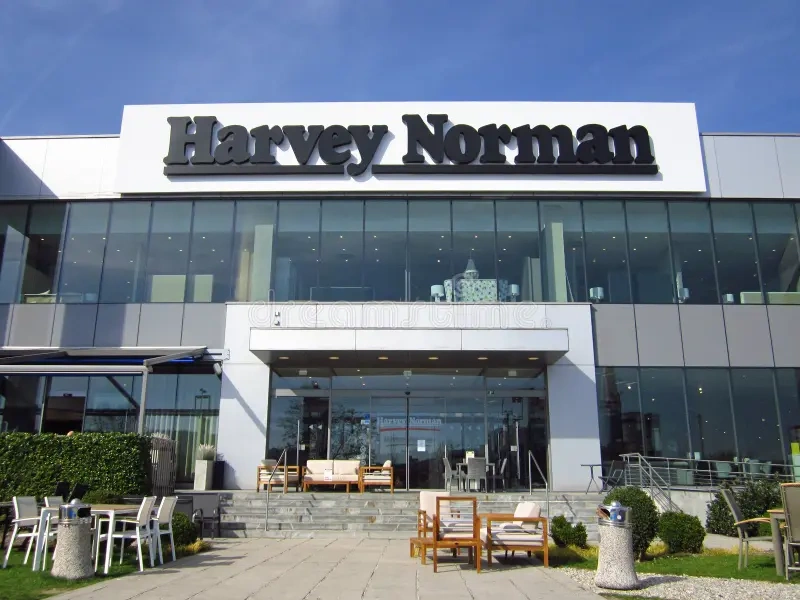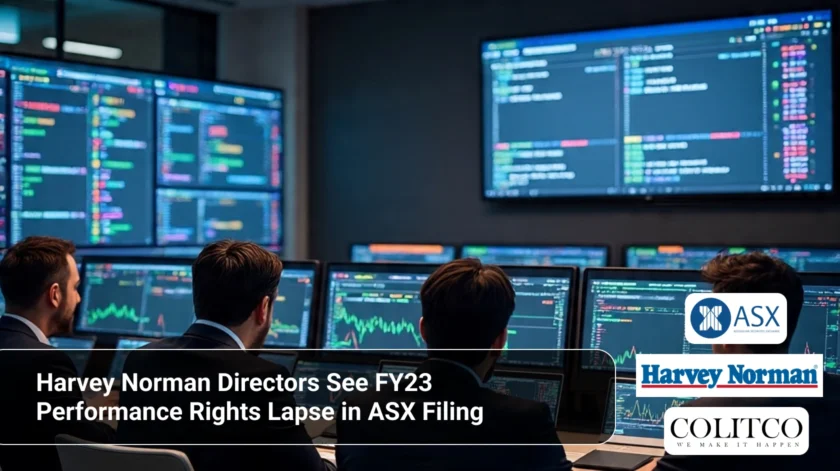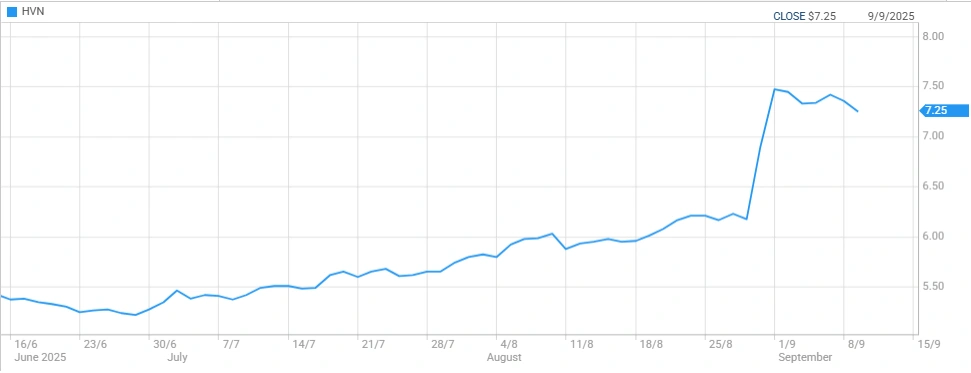Harvey Norman Holdings Limited (ASX: HVN), one of Australia’s leading retailers, has reported the lapse of performance rights previously granted to four senior directors. The disclosure, made under the Australian Securities Exchange (ASX) Listing Rule 3.19A.2, confirms that FY23 performance rights allocated to Executive Chairman Gerald Harvey, CEO Kay Lesley Page, COO John Evyn Slack-Smith, and CFO Chris Mentis have now lapsed.
 Harvey Norman Holdings Limited (ASX: HVN) operates one of Australia’s largest retail networks
Harvey Norman Holdings Limited (ASX: HVN) operates one of Australia’s largest retail networks
The filing highlights corporate governance practices in executive remuneration and is relevant for investors tracking insider interests in the company.
Key Disclosure Highlights
According to the Appendix 3Y notices lodged on 9 September 2025, the following changes were recorded:
- Gerald Harvey: lapse of 175,600 FY23 performance rights.
- Kay Lesley Page: lapse of 491,700 FY23 performance rights.
- John Evyn Slack-Smith: lapse of 146,500 FY23 performance rights.
- Chris Mentis: lapse of 146,500 FY23 performance rights.
These lapses mean that the performance rights granted in FY23 did not vest, either due to expiry or unmet performance hurdles. The disclosures were authorized by Company Secretary Chris Mentis in compliance with ASX requirements.
Corporate Governance Context
Performance rights are a common form of executive incentive, typically linked to company performance or share price hurdles. Their lapse indicates that certain targets or vesting conditions were not met. Such outcomes are not unusual in periods of economic uncertainty, competitive retail conditions, or where performance hurdles are deliberately set at challenging levels.
Harvey Norman’s disclosure underlines its adherence to ASX transparency rules, ensuring that changes in directors’ interests are promptly communicated to the market. For shareholders, such information provides clarity on how executive incentives align with company performance.
Strategic Significance of Performance Rights
Equity-based remuneration, including performance rights, is designed to align executive and shareholder interests by linking rewards with long-term company outcomes. The lapse of FY23 performance rights suggests that management incentives did not deliver additional equity exposure in this cycle. However, directors continue to hold substantial ordinary shares, maintaining a strong alignment with shareholders.
From a strategic perspective, the lapse also reflects how external economic conditions, such as consumer spending pressures and cost inflation, can affect large retailers’ ability to meet performance hurdles.
Shareholding Structure and Alignment
Despite the lapses, Harvey Norman’s directors retain significant equity exposure through existing holdings:
- Gerald Harvey remains one of the company’s largest shareholders.
- Kay Lesley Page also maintains a substantial equity position.
- John Evyn Slack-Smith and Chris Mentis both continue to hold ordinary shares alongside their executive responsibilities.
This ongoing shareholding ensures that management’s personal financial outcomes remain closely tied to Harvey Norman’s market performance.
Market Outlook for Harvey Norman
Harvey Norman operates across Australia, New Zealand, Asia, and Europe, with a broad retail portfolio spanning furniture, bedding, appliances, and technology. The retail environment in 2025 has been shaped by changing consumer spending patterns, lingering inflationary pressures, and evolving global supply chains.
While performance rights lapses suggest challenges in achieving certain targets, the company continues to leverage its extensive store network and strong brand positioning. For investors, disclosures such as these are part of evaluating long-term governance and performance.
Investor Sentiment and Share Performance
As of the most recent trading session (9 September 2025):
- Last Price: AUD $7.240
- Change: – $0.120 (down 63% on the day)
- Volume: 762,171 shares
- Bid/Offer Range: $7.230 – $7.240
- Market Capitalisation: AUD 9.17 billion
- Status Code: CD (Trading)
While the lapse of performance rights does not directly affect company fundamentals, such governance updates are often monitored by institutional investors who evaluate insider alignment as part of their decision-making.
Comparison with Market Peers
Other major ASX-listed retailers, such as JB Hi-Fi Limited (ASX: JBH) and Wesfarmers Limited (ASX: WES), also rely on performance rights and long-term incentive schemes. Variations in lapsing or vesting of such rights often reflect sector-wide conditions, particularly in cyclical industries like retail. Investors typically view these disclosures as part of broader governance trends rather than isolated signals.
Regulatory Compliance and Transparency
The Appendix 3Y notices were filed in line with ASX Listing Rule 3.19A.2, which requires companies to disclose changes in directors’ interests within five business days. Compliance with this requirement is a key part of maintaining investor confidence in the transparency of Australia’s capital markets.
Harvey Norman’s filings demonstrate its commitment to maintaining timely governance disclosures, an important factor given the company’s scale and investor base.
Government and Community Considerations
While not directly linked to government programs, disclosures around executive remuneration and performance rights are central to ongoing discussions in corporate Australia about fairness, transparency, and alignment with shareholder returns. These issues remain important for both investors and regulators.
Conclusion
The lapse of Harvey Norman Holdings Limited’s FY23 performance rights for four senior directors underscores the strict performance conditions tied to executive incentives. While the rights did not vest, directors retain significant shareholdings, ensuring continued alignment with shareholder outcomes.
For investors, the ASX filing is a routine but important disclosure that reinforces corporate governance transparency. It also provides insight into how executive incentives interact with broader market conditions in the retail sector. Harvey Norman remains a key player in Australian retail, and its governance disclosures form an essential part of assessing its long-term investment profile.
Disclaimer
This article is for informational purposes only and does not constitute financial advice. Investors should conduct their own due diligence or seek professional advice before making investment decisions.













